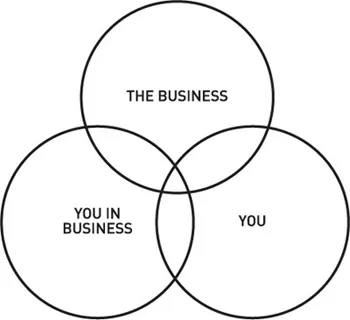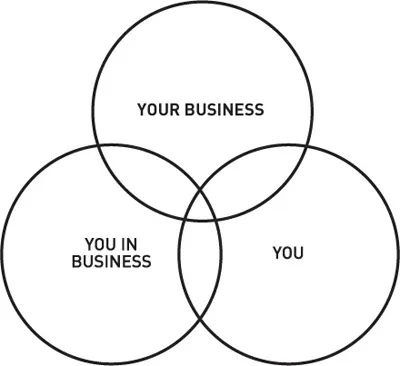![]()
1.
Paying your own wages
Bill Day began his business as a commercial diver in Nelson when someone asked if he could help pull up a sunken vessel. From there he jumped into larger and larger projects, eventually serving the oil and gas industry in New Zealand. Since those humble beginnings Seaworks has expanded to establish bases in Wellington and Dubai, still serving seagoing infrastructure projects (oil, gas and telecommunications), but on an increasingly larger scale and with increasingly sophisticated technology. The company now owns and operates under-sea robots and has purpose-built ships built to its own customised specifications. There are two points to this story. The first, of course, is that this is a high-growth, highly technical New Zealand business with offices here and in the Middle East. And the second point is that you probably have never heard of Seaworks or Bill Day, which leads us to why we wrote this book. It was to address, inform and maybe even enlighten those of you who own and manage your own business in New Zealand.
New Zealand owner-managers are the understated heroes of the New Zealand business landscape. You are essential to the success of our economy but little is known about you. Of course, there are ‘how to’ books for ‘small business’, but you already know how to run a business. You already have turnover in the millions, or at least over a million dollars a year. Your questions are not about if you can make a go of it, but rather if, when and how you can grow, sell or re-invigorate your existing business.
Getting to know you
In our experience working with New Zealand owner-managers, we have found significant differences between you and the typical MBA-type corporate manager. Here are some key distinguishing characteristics worth mentioning:
1. You are understated, rarely showing signs of bravado or elevated self-importance. Ironically, the richer you are, the less pretentious you tend to be. Many wealthy owner-managers drive a ute to and from work.
2. Short-term personal wealth and luxury is not so important. The idea that owner-operators are not interested in growing their businesses once they have a ‘beemer, bach and boat’ is overstated — at least in our experience with growth-oriented companies.
3. You have taken risks to get where you are. However, as your company grows, you find yourself thinking differently about risk, because now risk involves more than just money. It involves people you care about.
4. No one understands the business like you do, making you feel quite alone in your business. The accountant prepares standard financial statements, often showing no appreciation of your company’s business model. Your lawyers might lack business savvy and you seldom have open, honest discussions with your bank manager. Your partner at home does his or her best to understand the business, but can easily tire of day-to-day business problems.
5. Though you have business savvy, you seldom think conceptually about ‘the business model’ that underpins your business. You struggle to imagine the sorts of new business structures, new markets and new customers that may be required as your firm gets bigger.
6. You rely on your senses and intuition and will frequently decide what to do much more quickly than managers in bigger businesses. Once you get an idea or solution in your head you get on with it, usually telling your staff rather than asking them for their opinions. In short, you make big decisions in the same way you make small decisions.
7. You are ‘comfortable in your own skin’. You know who you are and if you didn’t keep your feet on the ground, your staff would label you a phony leader.
8. You are both generous and tight. You may be quite generous to the sick employee or the local school, but you watch your pennies when it comes to discretionary expenditure like research and professional development.
9. Loyalty is hugely important to you. You are loyal to your staff and expect loyalty in return. You may be especially loyal (sometimes too loyal) to those that were with you from the beginning of the business.
10. You are time poor and not in good physical shape. Willing to solve business problems by working ever-increasing hours, you sacrifice yourself for the good of the business and ignore exercise, healthy eating and sufficient sleep.
11. Family matters often infiltrate your business. Ownership structures, sibling rivalry and questions of fairness all affect the family-owned business, with or without family members physically in the business.
12. Finally, your management capability is limited. Even if you are an excellent manager yourself, you struggle to expand this capacity throughout the business. Developing a business plan, operational excellence, human resource practices, marketing strategies and creating a senior leadership team represent major challenges for you. At some point, a lack of management capability begins to have a real bearing on the ability of you and your firm to grow.
Taken together, these characteristics of owner-managers should remind you how intertwined you are with your business. You may often feel that you are the business or that the business is your life. Others around you may feel that way too. Of course, there is undoubtedly a large overlap between you as owner-manager, the business and your life. On the other hand, each of these elements should have a life of its own. Your business should be able to operate without you in it. And despite your great love for your business, you may want to be a mother/father, daughter/son or community member and not ‘just’ your business role. We recognise this competing and complementary intersection of interests and portray them together as key intersecting elements of the owner-manager’s world.
The three circles
We see the owner-manager’s life as three overlapping circles, as shown in Figure 1.1. You probably focus a lot on just one circle — the business. This is good because seeing the business as a going concern, independent of you, is an important way to improve the likelihood that the business could run without you. At some point, however, you may find yourself too focused on the business. It is consuming all your time and energy and ultimately this will limit your capacity to manage the business effectively. This syndrome is quite natural as the demands of the business squeeze other realities from your consciousness. Indeed, much of the support you have received so far — such as formal training, books or magazines, even most mentoring — probably focused primarily on the business. In this book, we will address other aspects of your business and personal life.
The book will address the traditional circle of ‘the business’ (see Figure 1.1) including its purpose, values, competitive advantage, core competence, strategy, business model, assets and liabilities. We will help you develop a business profile that describes the current state of the business and also help you consider next steps for your business in the future.
‘You in business’ captures the way you conduct yourself in the enterprise or enterprises that you own or of which you are a partial owner. Typically, you are the boss, which means you direct, manage and lead the business. Your role in the business may have been inherited from your parents or from a former owner. It may reflect your unique approach to management or it may be just doing what you think you should be doing. The good news is that you get to design your own organisation. The bad news is that it generally takes a lot of talented and experienced people to design an effective organisation and you have … you. Basically, you have the opportunity to design your own boat — while sailing it! If only you could step off the boat and not be submerged in an overwhelming sea of daily priorities.
FIGURE 1.1 THE THREE CIRCLES
The ‘you’ circle is about just that, you yourself, a person who happens to own a business, but who also may want to make a life, not just a living. Your desired life might include good health, a happy and fulfilling relationship with your life partner, children and friends, and even some reflective time for yourself. This good life is not independent of, and need not run counter to, your business interests. If you are in good personal health and a strong state of mind you are better able to contribute to your business. Especially as an owner-manager, your health and well-being is pivotal for the three circles to work together as a whole. And when they all work together, life is invigorating and fun. As Bill Day says, ‘I’ve always tended to see the upside rather than the downside. We’ve done many things over the years that are uncomfortable, but you just have to deal with that. I don’t think of fear and I don’t differentiate between work and play. To me it’s a hell of an adventure and I see the world as a fun place.’


